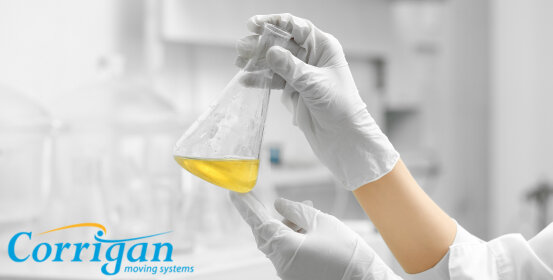Laboratory Relocation for Academic Institutions: Unique Considerations and Solutions

Relocating a lab, whether within the same institution or to a new location, presents distinct obstacles that need expert care. Rochester Universities and research facilities house a diverse array of equipment, valuable research materials, and sensitive instruments. Ensuring a successful move requires detailed preparation, expert knowledge, and a deep understanding of the educational landscape. This detailed article provides insights into handling the unique considerations involved in the relocation of laboratory facilities.
Understanding the Rochester Academic Landscape
Rochester Universities are active, multifaceted environments where laboratories play a essential role in education and research. Whether the move involves an individual laboratory or an entire research department, there are several key factors to keep in mind:
- Diverse Range of Equipment: Academic laboratories typically have a variety of equipment, from basic lab benches and storage units to complex analysis tools and specialized research apparatus. Each item demands delicate handling and often has unique relocation needs.
- Sensitive Research Materials: Many university labs store sensitive materials, such as bio-specimens, chemical substances, and scientific data. These materials often need special care, temperature control, or secure transport.
- Collaborative Environment: Unlike industrial labs, university labs are frequently shared spaces used by multiple research teams or departments. Managing a move in such an environment requires clear communication and planning to avoid disturbance.
- Educational Commitments: Academic institutions have regular educational activities. The moving process must be scheduled around academic calendars, guaranteeing minimal interruption on classes and student access to research facilities.
Critical aspects for Rochester Academic Laboratory Relocation

- Early and Detailed Planning
Planning is the foundation of a smooth laboratory move, especially in the educational environment. Begin preparations as soon as the move decision has been finalized. Involve all participants, including faculty, researchers, lab managers, and students, to hear their requirements and schedules. Develop a comprehensive moving plan that includes a complete inventory, a timeline that fits academic schedules, and a effective communication plan.
- Custom Solutions for Diverse Needs
Every academic lab is distinct, with particular needs based on its scientific concentration and equipment. It’s important to develop custom solutions for each lab being relocated. This may require specialized packing for delicate instruments, temperature-controlled transport for temperature-sensitive materials, or safe handling for risky chemicals. Corrigan Moving Systems offers personalized services to meet these diverse needs, guaranteeing that all parts of the relocation are executed meticulously.
- Managing Multiple Stakeholders
Academic moves involve a broad spectrum of participants, from teaching staff and researchers to management and operations staff. Effective communication and collaboration among these groups are vital. Establish clear lines of communication and consistent update sessions to keep everyone informed and engaged throughout the moving process. This method helps to align expectations and minimizes the likelihood of confusion or holdups.
- Ensuring Regulatory Compliance
University labs must follow strict regulatory standards, including those regarding protection, environmental protection, and ethical standards. During a relocation, it’s crucial to adhere to these standards to stop fines or interruptions to research activities. This includes proper documentation for the transport of hazardous items, compliance with biosafety protocols, and getting appropriate permits. Corrigan Moving Systems’ expertise in regulatory compliance guarantees that all legal requirements are fulfilled during your laboratory relocation.
- Limiting Downtime and Disruption
Academic schedules are often packed with , research deadlines, and active projects. Cutting downtime is crucial to ensure that academic duties and scientific projects proceed without disruption. Organize the relocation during semester breaks or other break times to minimize disruption. Additionally, collaborate with a Rochester moving company that can provide flexible timelines and efficient packing and unpacking services to expedite the process.
- Protecting Research Data
Research data is often one of the most valuable assets in an academic laboratory. During relocation, it’s crucial to guarantee that all data is securely backed up and protected. This may include physical transport of hard drives and data servers or employing secure online storage. It’s also essential to adhere to any university guidelines regarding data protection and privacy during the move.
Specialized Services from Corrigan Moving Systems
Corrigan Moving Systems has wide-ranging experience in handling the challenges of laboratory relocations for Rochester academic institutions. Here’s how we tailor our services to satisfy the special requirements of academic labs:
- Expert Handling of Equipment: Our crew is trained to handle a wide range of laboratory equipment, including microscopes, incubators, extraction hoods, optical tables, and centrifuges. We guarantee that delicate instruments and sensitive apparatus are packed, relocated, and reinstalled with the highest precision.
- Secure Transport for Sensitive Materials: We supply specialized packing and climate-controlled transport options for biological specimens, chemical substances, scientific glassware, and other fragile materials. Our relocation options guarantee these items reach their destination safely and undamaged, maintaining temperature-controlled environments ranging from ambient to -190 degrees Celsius. Units remain plugged in and operational during transport, with 24/7 monitoring.
- Regulatory Compliance and Documentation: Our knowledge in regulatory compliance means we can manage all needed records and authorizations, making sure that your move adheres to all relevant safety and legal standards. This involves biosafety protocols, hazardous material transport regulations, and environmental protection guidelines.
- Customized Moving Plans: We design detailed, customized moving plans for each relocation, customized to the unique requirements of your laboratories and matching your academic schedules. Our plans guarantee minimal disruption to teaching and research activities.
- Minimizing Disruption: We partner with your staff to organize the move around your academic calendar, reducing disruption to classes and research activities. Our flexible scheduling and efficient packing and unpacking services speed up the move, guaranteeing a seamless move.
- Temperature-Controlled Transport: We oversee the relocation of your freezers and refrigerators, ensuring thermally-regulated environments are kept throughout the move. This service is vital for preserving biological specimens, reagents, and other temperature-sensitive materials.
How to Get Started with Your Rochester Laboratory Relocation
If you’re preparing for a laboratory move inside or to a new university, working with a professional Rochester moving company like Corrigan Moving Systems can be highly beneficial. With our specialized moving services and deep understanding of the educational landscape, we are equipped to manage the unique challenges of your move.
Reach out to Corrigan Moving Systems now to talk about your laboratory relocation needs. Our team of experts is ready to offer a tailored plan that guarantees a successful, efficient, and successful move, enabling you to keep up your main activities—instruction and research. Let us help you transition seamlessly to your new site, keeping your work intact and the continuity of your academic mission.
- Greece
- |
- Irondequoit
- |
- Canandaigua
- |
- Brighton
- |
- Hilton
- |
- Ontario
- |
- Churchville
- |
- Spencerport
- |
- Honeoye Falls
- |
- Scottsville
- |
- Henrietta
- |
- Mendon
- |
- Pittsford
- |
- Fairport
- |
- Penfield
- |
- Webster
- |
- Macedon
- |
- Victor
- |
- Churchville
- |
- Chili
